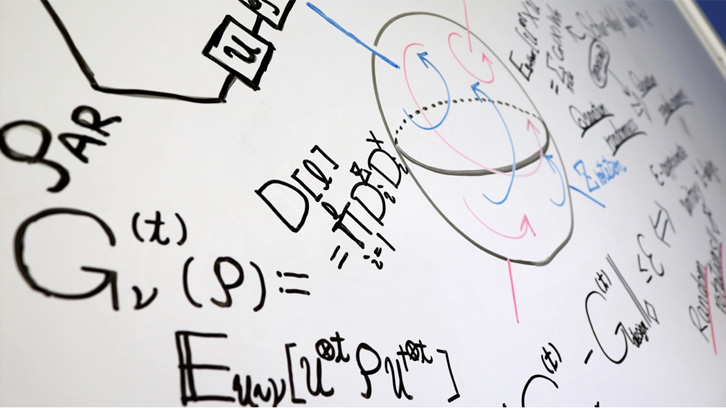Fast generation of quantum pseudo-randomness and its applications in quantum information science

Randomness is often useful in information processing, ranging from shuffling cards to algorithmic or cryptographic applications. This is true also in the newly developing field of information processing at small scales of atoms and molecules, where highly counter-intuitive quantum mechanical phenomena are exploited to our advantage. Such information processing is called “quantum information processing”, as it relies on quantum mechanics, physics’ most fundamental theory governing atoms and molecules. As information processing has necessarily to be consistent with physical laws, quantum information processing is fundamentally the most powerful way of processing information.
Quantum randomness, randomness in quantum information processing, is an extremely powerful resource and allows us to perform many quantum protocols. However, quantum randomness is so expensive that using it is almost unrealistic. Indeed, even if we have quantum computers, the fastest possible computers using all the power of quantum mechanics, it takes unrealistically long time for quantum randomness to be generated. Fortunately, in most applications of quantum randomness, we can instead use an approximate version called quantum pseudo-randomness. So, how can we generate quantum pseudo-randomness?
In the series of our works referenced down here, we have found a novel and easy method of generating quantum pseudo-randomness. Our method is not only simpler than the previously known ones but also takes much shorter time to generate quantum pseudo-randomness. We then apply this efficient method to one of the most important applications of quantum pseudo-randomness, a “decoupling protocol” for quantum correlations. It turns out that when our method is used, decoupling can be achieved with rather “weak” quantum pseudo-randomness. This result leads to a simplification of the decoupling protocol and helps many quantum information processing tasks, where decoupling plays a key role, to become reality.
On the third article of the series, we have further explored the connection of our results to quantum physics on the third paper of the series. The importance of quantum pseudo-randomness lies not only in quantum information processing, but also in the understanding of fundamental physics such as quantum black holes, quantum chaos, and quantum thermodynamics, which is not so surprising because physics should be ultimately understood as information processing in nature. In recent years, analysis of quantum pseudo-randomness has revealed deep connections between seemingly different physical phenomena, such as quantum evaporation of black holes and quantum chaos. Because our method of generating quantum pseudo-randomness can be interpreted as physically feasible dynamics, it reveals for the first time a natural microscopic mechanism for these fascinating phenomena in complex quantum systems.
Universitat Autònoma de Barcelona
References
Yoshifumi Nakata, Christoph Hirche, Ciara Morgan, Andreas Winter, Unitary 2-designs from random X- and Z-diagonal unitaries, J. Math. Phys. 58:052203, 2017; arXiv:1502.07514v4
Yoshifumi Nakata, Christoph Hirche, Ciara Morgan, Andreas Winter, Decoupling with random diagonal unitaries, Quantum 1:18, 2017; arXiv:1509.05155v3
Yoshifumi Nakata, Christoph Hirche, Masato Koashi, Andreas Winter, Efficient unitary designs with nearly time-independent Hamiltonian dynamics, Phys. Rev. X 7:021006, 2017; arXiv:1609. 07021v3

